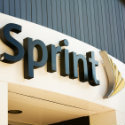
MWC Los Angeles -- Sprint said it now covers 16 million people with its 5G service, an increase from the 11 million it touted just a few months ago. The company also boasted here that its 5G network provides a 6x improvement in average download speeds when compared with its 4G LTE network.
And Sprint reiterated that what it's offering is "true mobile 5G."
"It's unlike anything we've seen before," Bryan Fries, Sprint's VP of 5G strategy and global services, said here at Light Reading's 5G Network & Service Strategies breakfast workshop. "We are proud at Sprint to have the largest 5G footprint in the country."
Indeed, Sprint's 5G coverage area is far bigger geographically than those from AT&T and Verizon, mainly because Sprint is using 2.5GHz spectrum for its 5G network. Signals in that spectrum band travel much further than the millimeter-wave spectrum that AT&T and Verizon are using for their 5G networks. Sprint launched 5G in nine markets earlier this year, and has since expanded coverage in those nine markets by adding more cell sites.
"We're continuing to build," Fries said. "It's a strong start."
However, Sprint must also continue to toe a fine line between touting its own 5G efforts while concurrently arguing that regulators should approve the company's proposed merger with T-Mobile. That's because a big part of Sprint's merger justification involves claims that it cannot pursue a major 5G buildout on its own.
"With True Mobile 5G services available in metro areas of nine U.S. cities, Sprint continues to advocate for a merger with T-Mobile to accelerate the deployment of a ubiquitous, nationwide 5G network that includes coverage in rural locations," the operator noted in a press release announcing its 5G footprint expansion. "Sprint's existing 5G deployment shows the potential of 5G, and the combined company will have the resources and technology to bring that potential to reality by building a 5G network that fuels innovation across every industry, dramatically increasing competition, unleashing new economic growth, and creating thousands of jobs and billions of dollars in U.S. economic value."
T-Mobile and Sprint have made 5G a driving force in their push to get regulatory approval on their proposed merger, contending that the combination of Sprint's 2.5GHz spectrum with T-Mobile's 600MHz spectrum will allow the combined company to build a super-fast 5G network across wide portions of the country.
Although officials at the FCC and Department of Justice have signed off on the transaction, a group of state attorneys general has filed a lawsuit against the merger, claiming that it will harm Americans by reducing competition in the wireless industry.
— Mike Dano, Editorial Director, 5G & Mobile Strategies, Light Reading | @mikeddano
About the Author(s)
You May Also Like












